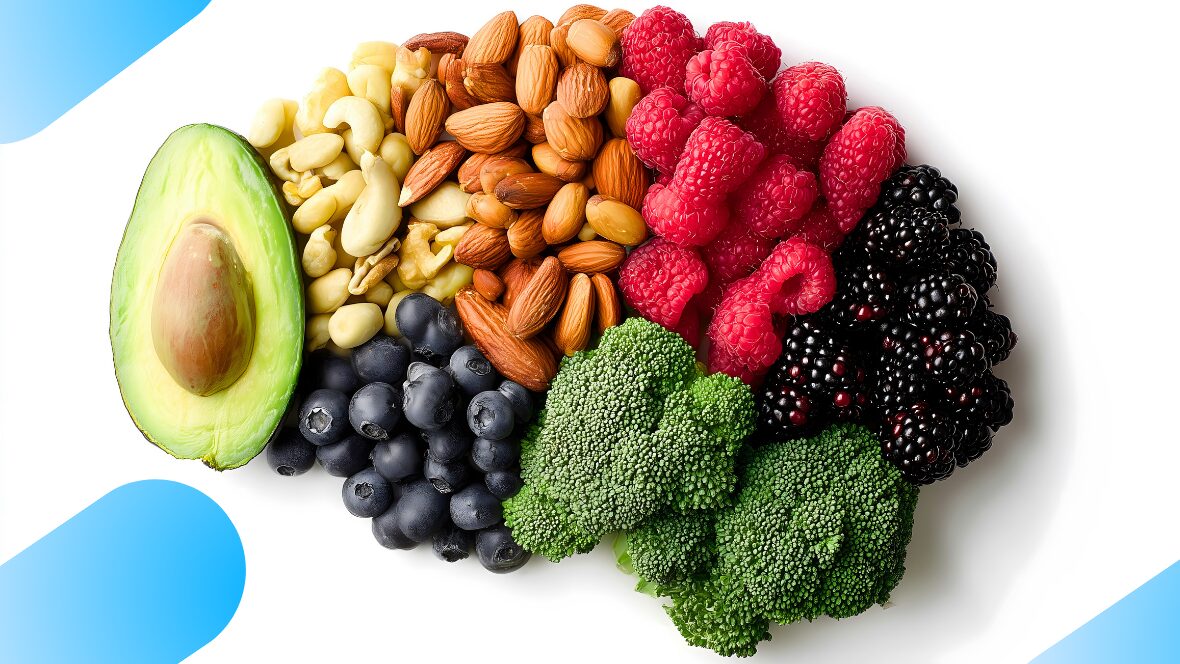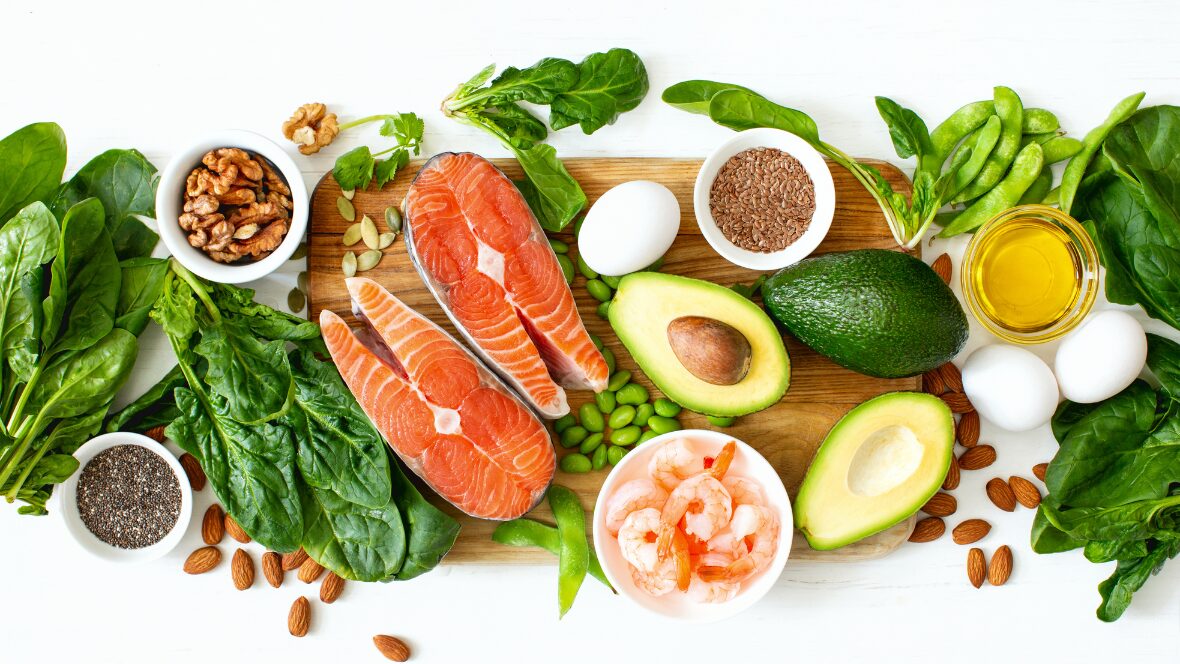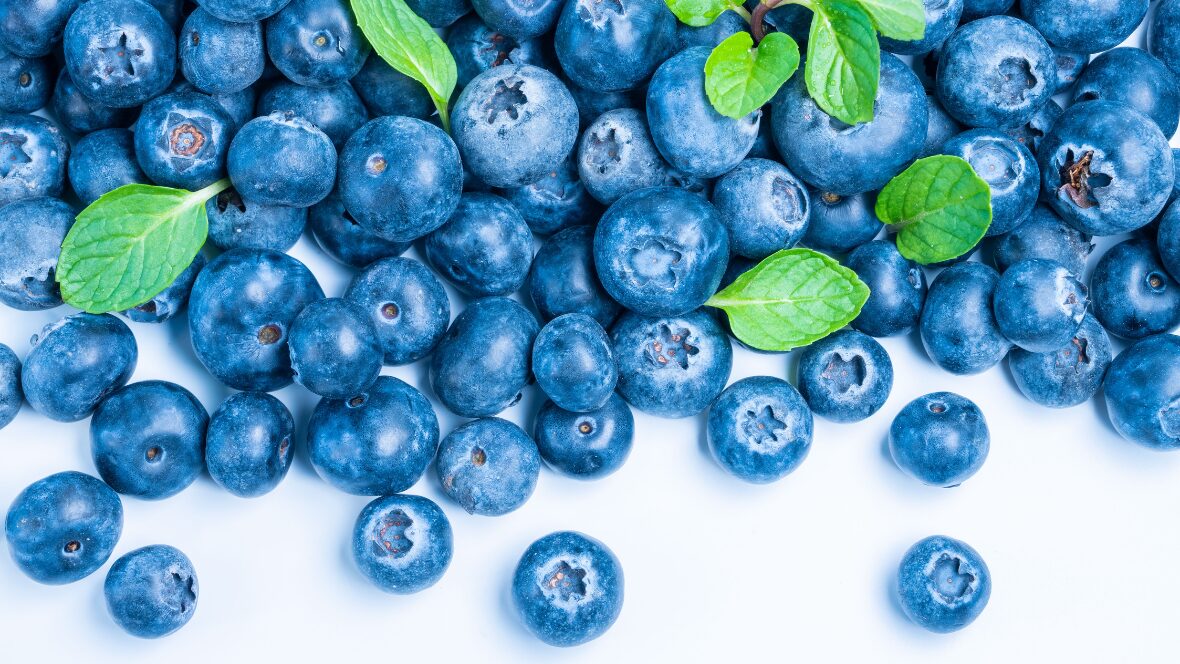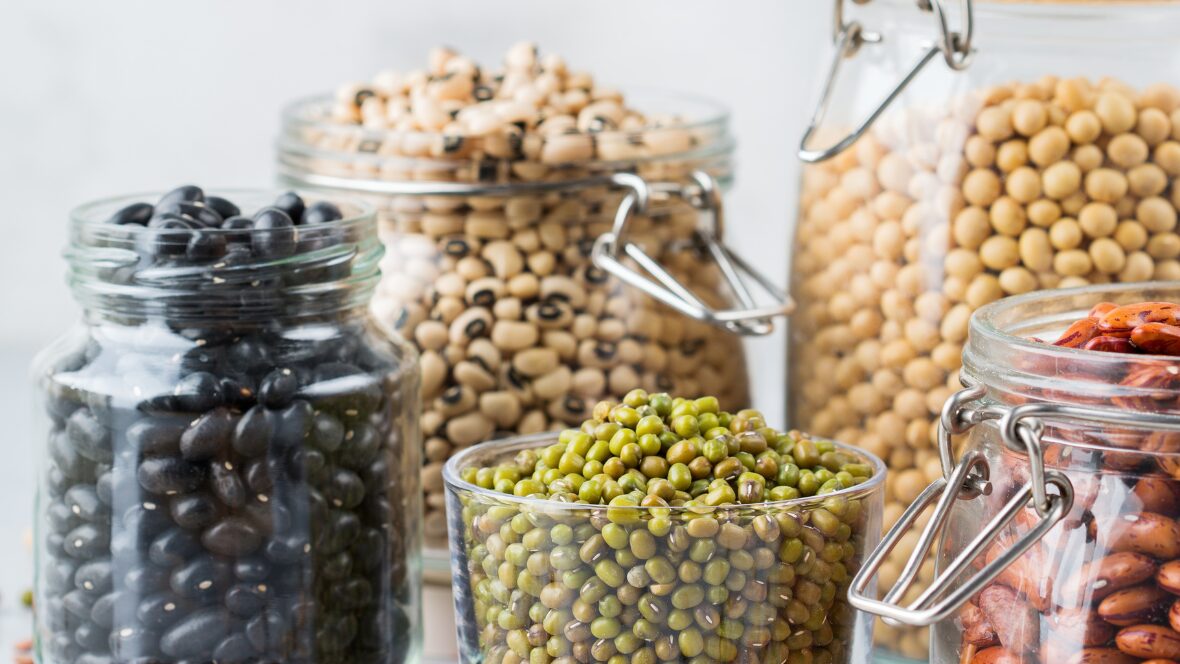When it comes to brain health, what you put on your plate matters just as much as how much sleep you get or how often you exercise. Research continues to show that nutrition plays a powerful role in cognitive function, emotional balance, focus, and long-term brain resilience.
The good news? You don’t need complicated protocols or fancy supplements to support your mind — just smart, intentional nutrition choices.
Let’s break down three key nutrient groups that fuel a healthy brain: Omega-3 fatty acids, fiber, and polyphenols.
Omega-3 Fatty Acids: The Brain’s Building Blocks
About 60% of your brain is made of fat — and omega-3 fatty acids are some of the most important structural fats it uses. These essential fatty acids form brain cell membranes, support communication between neurons, and help regulate inflammation.
Benefits of Omega-3s for Mental Health
-
Improves memory and learning
-
Supports focus and cognitive performance
-
Important for emotional balance
-
Helps protect the brain as we age
Best Food Sources
-
Salmon, sardines, tuna & mackerel
-
Flaxseeds & chia seeds
-
Walnuts
-
Algae-based Omega-3 for plant-based diets
Aim for two servings of fatty fish per week or consider a high-quality Omega-3 supplement.
Polyphenols: Antioxidant Power for Brain Protection
Polyphenols are antioxidants that help protect the brain from oxidative stress — a major contributor to cognitive decline, depression, and neurodegenerative disease. They also support healthy blood flow to the brain, which enhances learning, memory, and alertness.
Benefits of Polyphenols
-
Helps protect brain cells from damage
-
Supports memory & learning
-
Promotes healthy blood flow to the brain
-
Reduces inflammation
Best Food Sources
-
Blueberries, strawberries, blackberries
-
Green tea
-
Dark chocolate (70% cocoa or higher)
-
Turmeric
-
Extra-virgin olive oil
-
Red grapes & pomegranate
Pro-tip: A square of dark chocolate + green tea makes a brain-boosting afternoon pick-me-up.
Fiber: Nourishing the Gut-Brain Connection
The gut and brain are deeply connected — so much so that the gut is often called the “second brain.” This connection is largely driven by the microbiome and the production of neurotransmitters like serotonin (90% of which is made in the gut!).
A fiber-rich diet feeds beneficial gut bacteria, reduces inflammation, and supports stable blood sugar — crucial for steady energy and focus.
Benefits of Fiber for Mental Health
-
Supports serotonin production & mood balance
-
Promotes stable energy levels
-
Reduces inflammation
-
Supports clear thinking & focus
Best Food Sources
-
Leafy greens
-
Beans & lentils
-
Oats & quinoa
-
Apples, berries, avocados
-
Broccoli & Brussels sprouts
Aim for 25–30 grams of fiber each day.
A Brain-Boosting Meal Idea
Try this simple brain-fuel plate:
-
Grilled salmon or chia-seed pudding
-
Fresh spinach with olive oil & walnuts
-
A cup of green tea
-
A handful of blueberries
This combination floods your body with healthy fats, antioxidants, fiber, and plant-powered nutrients your brain thrives on.
The Bottom Line
Nourishing your brain isn’t just about preventing disease — it’s about feeling your best today. Every meal is an opportunity to support:
✅ Clearer thinking
✅ Better mood balance
✅ Sharper memory
✅ Increased focus
✅ Long-term brain vitality
Start small. Add one brain-loving food a day. Your future self will thank you.
Ready to Fuel Your Mind from the Inside Out?
If you’d like support building a nutrition plan that enhances brain health, energy, and emotional wellness, reach out or schedule a consultation — we’re here to help you feel and perform your best.




